How to stop your puppy crying at night
Is your puppy crying at night? If you’re looking for a way to ease those heart-wrenching cries, we’ve got you covered.
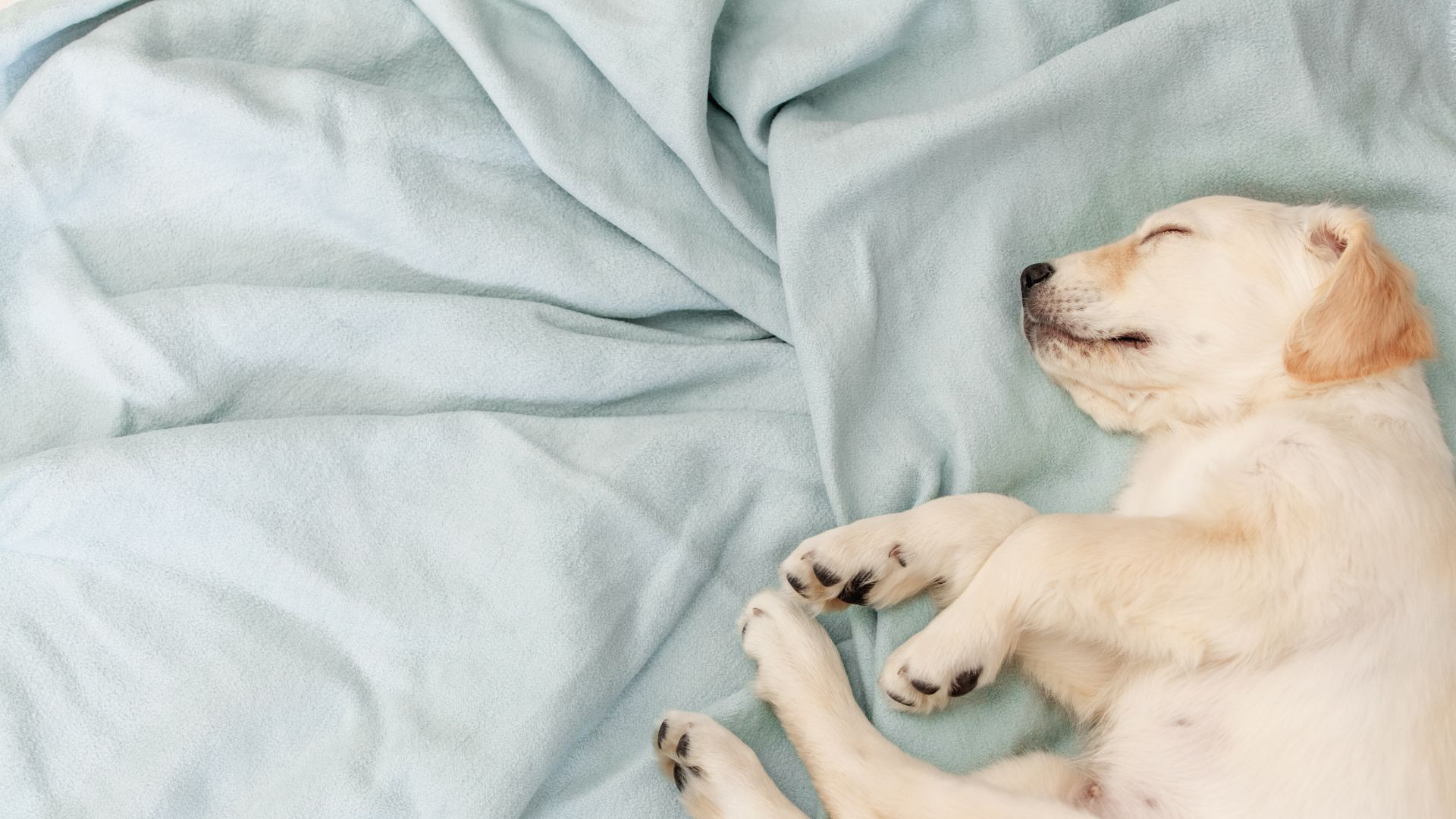
Why is your puppy crying at night? You tuck your puppy into their bed or crate at bedtime. You’ve fed them, taken them outside to use the bathroom, and filled their sleep space with the coziest items. So why is your puppy crying at night?
Please hear us, this is very normal puppy behavior. We know it can be so hard when you’re pup is crying at night and it can make you feel helpless.
Even with all the right supplies like one of the best dog beds, it can still feel impossible when you’re trying to figure out how to get a puppy to sleep through the night.
Puppies are much like babies in that they can feel scared and vulnerable at night, so they’ll often cry as a way of signaling to you that they need company and comfort. We know this can be tiring and overwhelming.
Luckily there are several ways that you can offer love and security to your puppy while also helping them get the sleep they (and you) need. Read our full guide on everything from why your puppy is crying to ways to help them settle.
Why is my puppy crying at night?
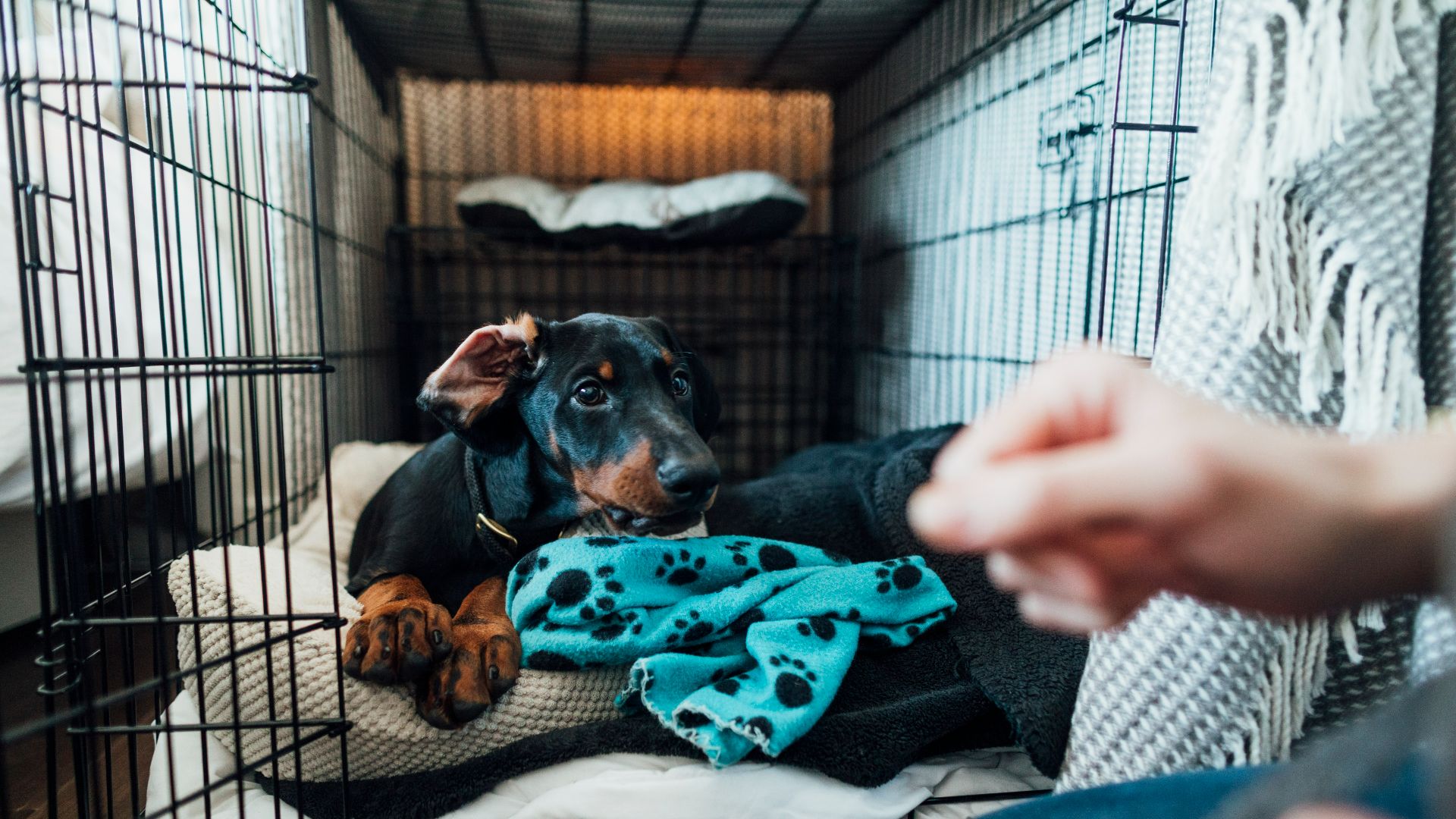
It’s normal for puppies to experience a period of anxiety as they settle into a new home. Remember that up until they came to you, they were most likely with their mother and littermates, so this is probably the first time they’ve been separated from the comfort and security they’ve known since birth.
For the first year of their life, puppies can find it incredibly challenging to be left alone. Separation anxiety (from both their family of origin and from you) can make your little one feel vulnerable and unsafe, and being alone in their crate may also trigger feelings of loneliness. This can be especially true if they are one of the dog breeds most likely to have separation anxiety.
Get the best advice, tips and top tech for your beloved Pets
Alongside anxiety, loneliness, and a general feeling of being without comfort and companionship, the other main reason your puppy is likely to cry at night is because they need to use the bathroom. Most young puppies can’t hold their bladder through the night and will often cry to alert you to the fact that they need to go outside to relieve themselves.
7 tips to stop your puppy crying at night
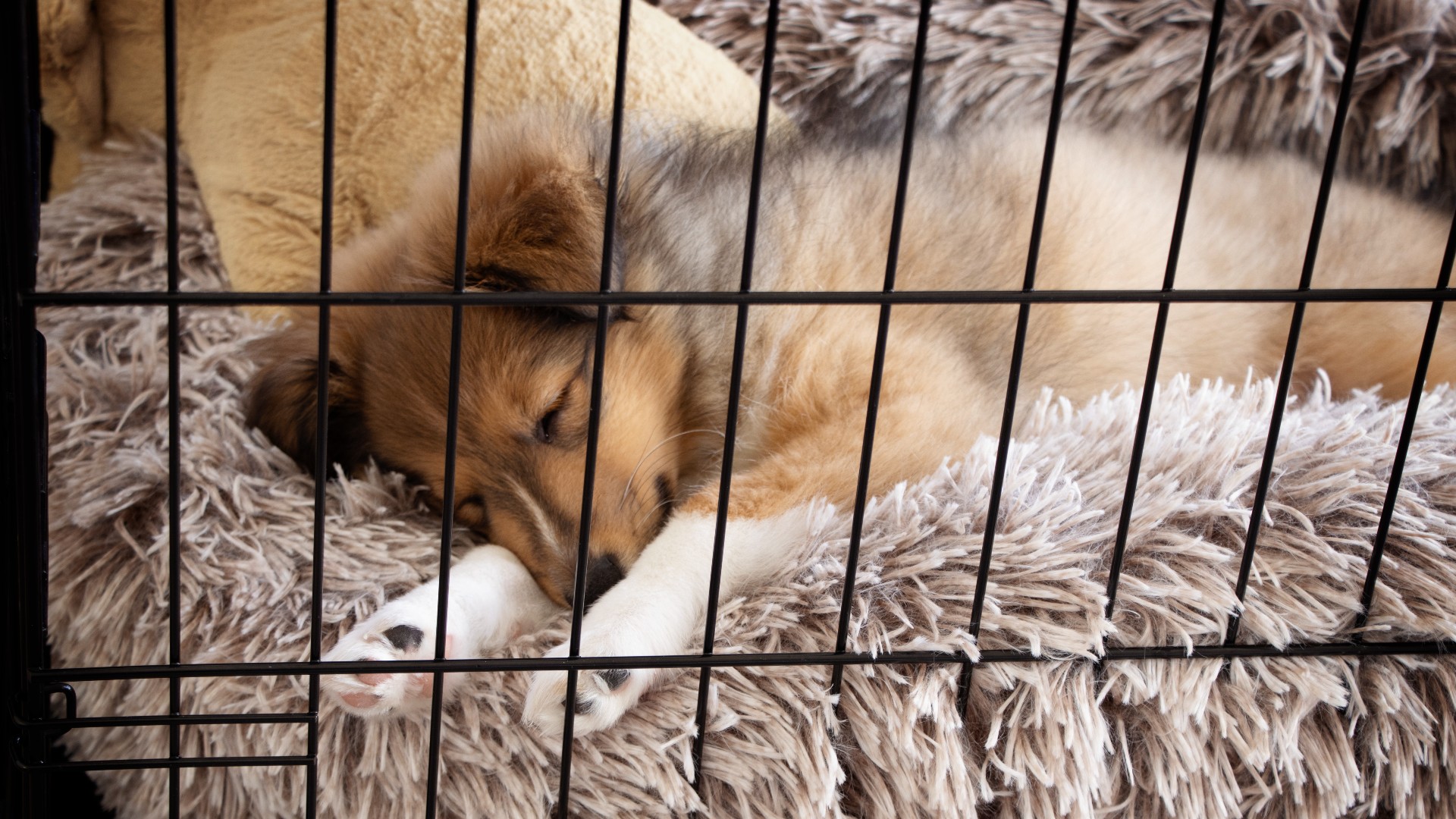
The good news is that while those first few weeks without their dog family can feel really tough for a little puppy, there are plenty of things you can do to help make the transition period a smooth one and minimize any night time crying. Here are our favorite tips…
1. Feed your puppy several hours before bed
We know how tempting it can be to want to send your puppy to bed with a tummy full of the best puppy food, but we recommend you give them their last meal three hours before bed and withhold water for the hour before you tuck them in for the night.
There are two main reasons for this. The first is that puppies and adult dogs get their energy from food in much the same way that we humans do, so a meal before bed is likely going to make them want to play rather than sleep.
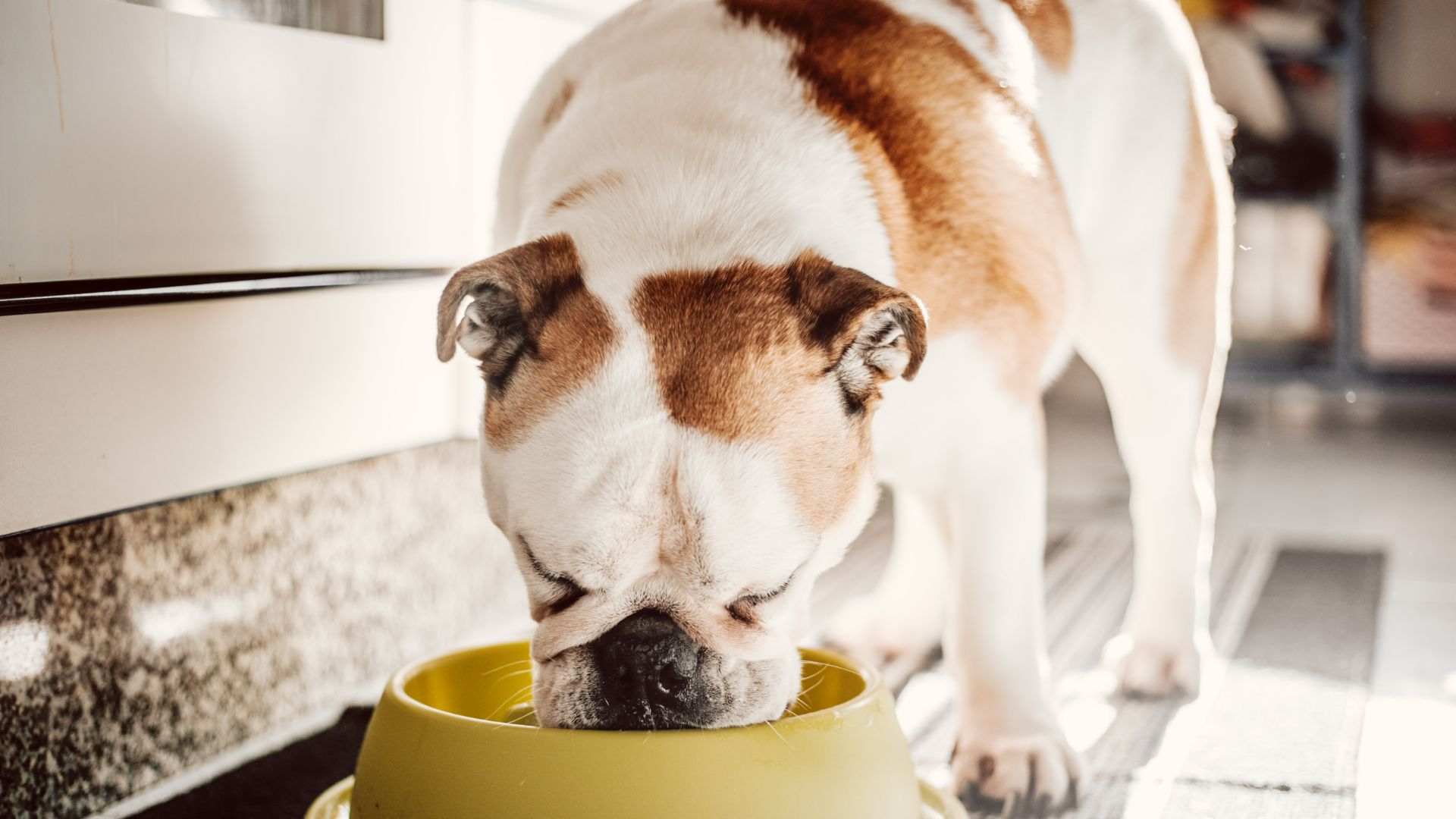
The second reason we advise withholding food for several hours before bed and water for the final hour is that puppies have much smaller bladders at this age than adult dogs. Giving them time to digest their food and empty their bowels and bladder before bed will make crying out to use the bathroom during the night less likely.
2. Take them to the bathroom
It’s crucial that you let your dog out into the yard (or take them for a walk) before you put them to bed to ensure they’ve had a chance to use the bathroom. But, even if you’ve done this, be prepared for them to cry out at some stage during the night as it’s unlikely they’ll be able to ‘hold it’ until the morning.
Learning how to potty train a puppy can take some time and even if your little one masters this skill fairly quickly, expect to get up around twice during the night to let them relieve themselves. Use their age as a guide - a three-month-old puppy tends to need the toilet every three hours and a four-month-old puppy usually needs to go outside every four hours.
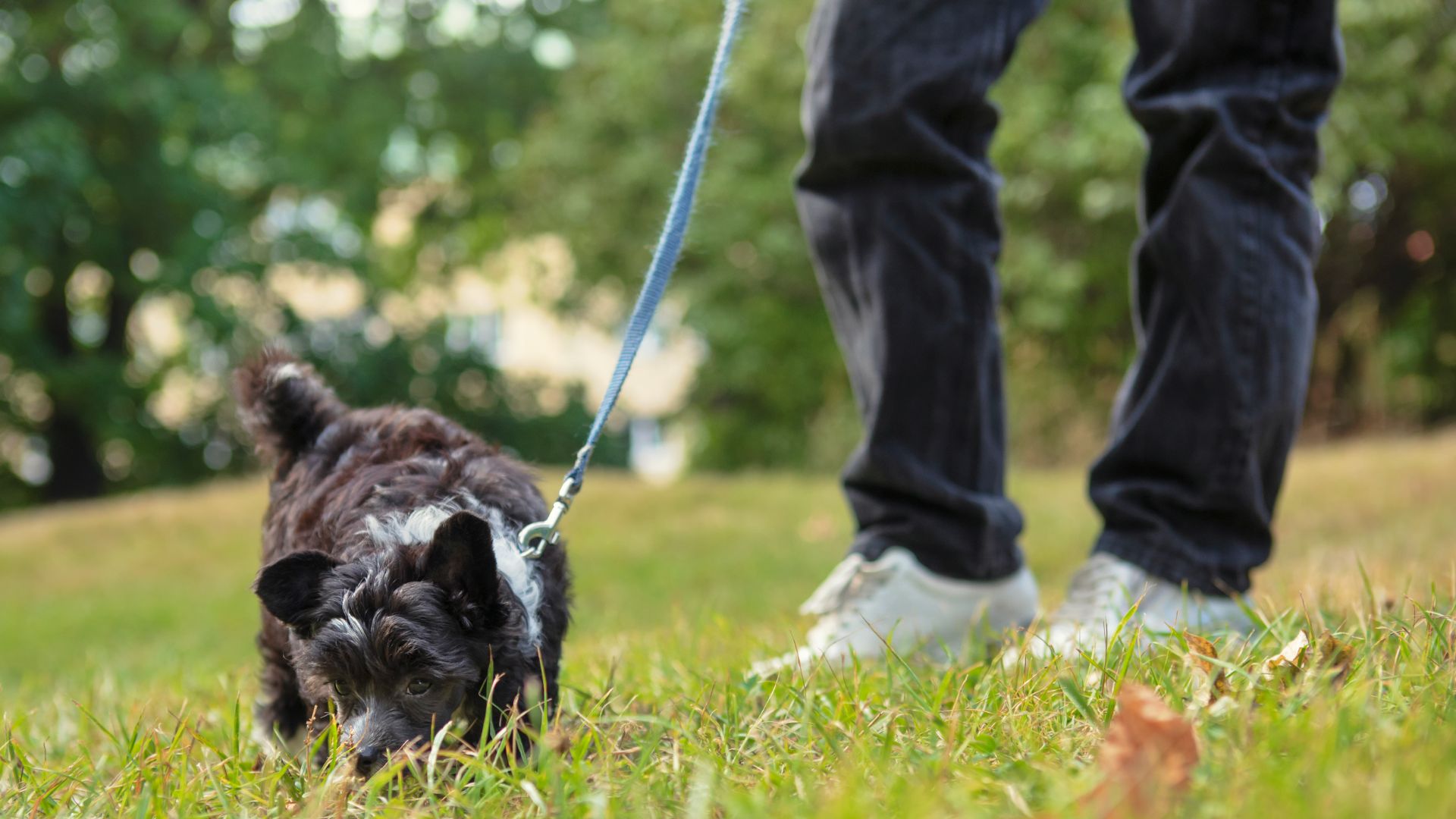
If your puppy cries during the night because they need to use the bathroom, try not to make a fuss of them when you go down to let them out - the last thing you want is for them to think it’s time to play. Instead, speak quietly, take him straight outside without petting him and once he’s done his business, praise him and pop him back in his crate, leaving without any fuss.
3. Create a cozy sleep space
One of the most important things you can do to help your puppy stop crying at night is to make their sleep space as welcoming and comfortable as possible. Invest in one of the best dog crates furnish it with a nice warm blanket, and add a comforting toy to help make your puppy feel at home.
Because they’re likely used to sleeping with their mother and littermates, suddenly spending the night alone can trigger all sorts of scary feelings for young puppies. It’s well worth considering one of the best puppy sleep aids if you’re looking for ways to help your little one feel safe and secure and encourage them to quickly settle when you put them down for the night.
4. A tired puppy is a sleepy puppy
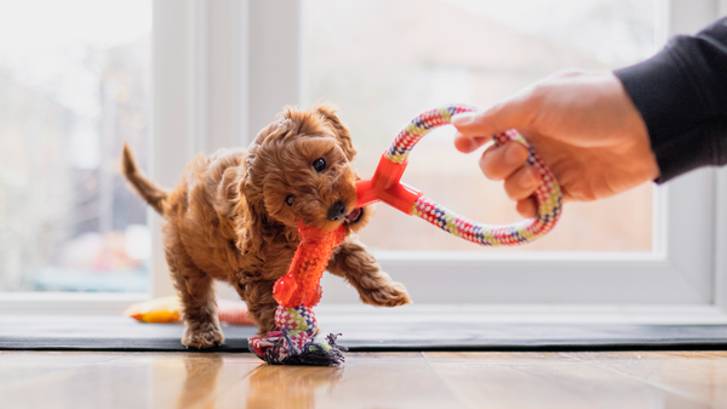
We can’t stress enough how much your life will be made easier if you tire your puppy out before putting them to bed. A puppy that’s tired from having been on a walk or engaged in a play session is likely to slip straight into dreamland, which means no crying during the night and no disrupted sleep for you!
The best puppy toys are a great way to help your little one burn off some of the best dog puzzle toys that stimulate both the brain and body. Just be mindful not to wind up their energy in the hour before bed as this will have the opposite effect and make it hard for them to settle down.
If you're looking for new ways to help your puppy burn off energy, check out our guide to how to tire out a puppy, which has lots of tips and tricks!
5. Check on your puppy
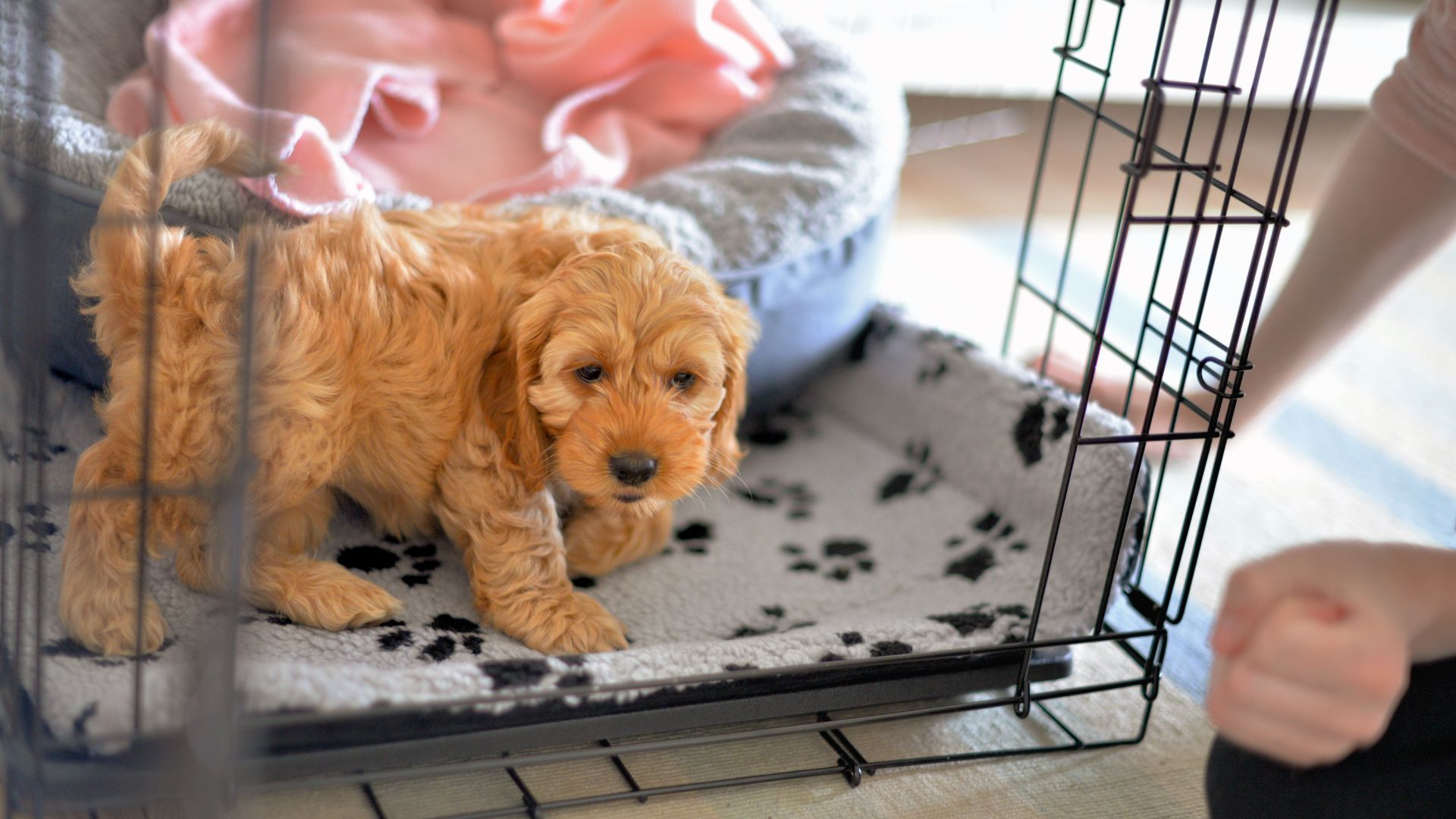
It’s a really common mistake amongst pet parents to leave their puppies to cry during the night without checking on them. A lot of people worry that going to see if their puppy is okay will teach their ball of fluff that crying gets them what they want. But when done correctly, this can be avoided.
What you want to do is slowly build your puppy’s confidence and help them to become independent and if they’re crying incessantly, ignoring them can have the opposite effect, increasing their anxiety and causing more crying - which, if you have neighbors, will likely make you very unpopular!
Instead of ignoring the crying and hoping it will stop, go ahead and check on them. We recommend you avoid contact with your little one (so no talking or cuddling), but simply sitting there for a moment or two may be enough to reassure them and calm them down.
6. Create a good routine
Never underestimate the power of a good routine - it works for children and it works for puppies too! Try to ensure that your puppy goes to sleep at roughly the same time each night and in the same spot.
Stick to a similar routine in the hours before bed too and when it is time to go to sleep, have a little ritual where you tuck them in, close the curtains and turn off the lights. Doing this every day will help your little one to know what to expect.

7. Try music
One way to create a calming atmosphere at bed time is to play soothing music for your puppy which can help soothe separation anxiety and allow your little one to relax enough to doze off. Harp music has a natural sedative effect and nature sounds can also work wonders. Remember to play it softly though as dogs have very sensitive hearing.

Kathryn is a freelance writer who has been a member of the PetsRadar family since it launched in 2020. Highly experienced in her field, she's driven by a desire to provide pet parents with accurate, timely, and informative content that enables them to provide their fur friends with everything they need to thrive.
Kathryn works closely with vets and trainers to ensure all articles offer the most up-to-date information across a range of pet-related fields, from insights into health and behavior issues to tips on products and training.
When she’s not busy crafting the perfect sentence for her features, buying guides and news pieces, she can be found hanging out with her family (which includes one super sassy cat and a kitten), drinking copious amounts of Jasmine tea and reading all the books.
She has written for a range of publications, including Fit&Well, Top Ten Reviews, LiveScience, Goodto, and Product Hunt.
